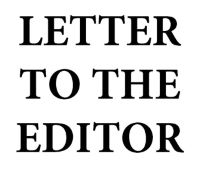“The Louvre was once the taker. Now it has been taken from”
A COLUMN By: Johanna Elattar
On a quiet Sunday morning in Paris, thieves used a crane to reach an upper-level window of the Louvre, smashed their way in, and escaped with nine royal jewels worth over $100 million. No cinematic trickery. No theatrical stunts. Just precision, audacity, and advance knowledge of where the museum was weakest.
French lawmakers are now demanding answers. It has already been revealed that major sections of the Louvre — the most visited museum on earth — had less than half their security cameras active. Some systems were years overdue for modernization. The museum’s myth of invincibility turned out to be mostly that — myth.

But this story is far bigger than one robbery.
Because this was not just about failure — it was about global cultural vulnerability.
We are living in a time when criminal networks have evolved as fast as, or faster than, our institutions. Art theft isn’t just crime — it’s now geopolitics. High-value artifacts disappear into private vaults, get funneled through laundering states, or reappear in offshore auctions under false provenance. This is not petty theft. This is infrastructure-level theft.
And here is the other side — the part most media will reduce to a quiet footnote.
Much of the world’s heritage sitting in Western museums was also taken — just more politely.
As someone from a civilization whose sacred history is displayed behind foreign glass, I cannot talk about this heist without acknowledging the contradiction. The Louvre was once the taker. Now it has been taken from. History is not fixed — it moves, circulates, changes hands. Sometimes by treaty. Sometimes by force. Sometimes, as we saw last Sunday, by ladder and motorbike.
What this heist truly shattered was the illusion of permanence.
The belief that if you lock the past inside a European palace, it will remain safe forever.
It won’t.
Not from thieves.
Not from nations.
Not from erasure.
If the Louvre — the assumed final vault of civilization — is exposed, then the question is no longer whether heritage can be stolen.
The question is: how much has already vanished, quietly, that no one even noticed was gone?
Johanna Elattar is a writer and journalist whose work has appeared in the Oxford University Press anthology and international outlets.






